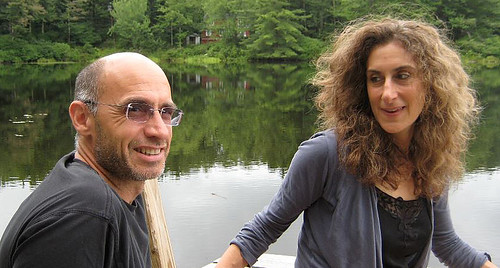Chairman Creative Writing Sfsu
SF State creative writing professor Stacy Doris dies of cancer
Stacy Doris, an SF State creative writing professor known for her experimental poems and lectures, died Jan. 31 of complications from cancer. She was 49 years old. Doris was diagnosed with Leiomyosarcoma, a rare and deadly malignant cancer of smooth, involuntary muscles, in December 2009 and underwent several operations and radiation therapies to only fall into relapse shortly afterward. In most cases, the cancer is incurable. Chet Wiener, her husband of 20 years, said the cancer grew more severe as time went on. "The last recurrence was very different," Wiener said. "In April, she went through radiation and it wasn't supposed to grow back for 6 weeks, but it spread immediately. She tried numerous chemotherapies. She had one tumor that weighed 27 pounds, and that tumor was removed 6 weeks before she died. It grew back and consumed her." Norma Cole, a Canadian poet and French translator, was a close friend of Doris for more than 20 years since their days in Paris. "She was an extraordinary friend, generous, honorable, discerning, thoughtful, vivacious—a forever friend," Cole said. According to Cole, Doris's intelligence was one-of-a-kind. "Poetry and the world of imagination meant everything, were everything for Stacy," Cole said. "Her scintillating intelligence was at work every moment. Her innovative writing was different from anyone else's, and different from herself. In other words, every book was a different experiment in poetry. And yet these experiments are all chapters from the book of Stacy Doris." Paul Sherwin, dean of the College of Arts and Humanities, reviewed Doris extensively before her hire. "Stacy Doris was, and always will be, a star of the first order of magnitude in the universe of poetry," he said. According to Maxine Chernoff, chair of the creative writing department, Doris's writing style was reflected in her teaching when she started at SF State in 2002. "She was a highly original and inventive poet and brought her generous and visionary ideas to her classes, who loved the openness of her method and the variety of her approaches to the form," Chernoff said. According to Wiener, Doris challenged the students and herself every semester. "She never taught the same course more than once because she felt that each class had to be alive and spontaneous," Wiener said. "She would usually teach a course with a different name every semester and if she was assigned the same course from before, she would not do what she did before. The reading list would always change, always challenging the creative writing students, and she would never use the same sources or textbooks." Kathryn Pringle, an SF State MFA graduate, said Doris pushed her to learn challenging forms of poetry and will dedicate to her a book of poems that will appear next year. "The first word that comes to mind in describing Stacy the professor is generous (but) this does not mean she was easy. She was not at all easy; she was extremely challenging," Pringle said. "Her ideas about poetry and being a writer were all very new to me that but now they seem to be fully integrated into my own practice." Doris's friends and colleagues all attest to her openness despite her tribulations. She had few reservations. "We had many now-treasured times together in that period of difficulty in her life, often going to lunch or tea and talking about everything from poetry to children to idle gossip to deep issues about her own views of life and death regarding her illness," Chernoff said. This was also reflected in her writing, said Steve Dickison, director of the SF State Poetry Center. "If you look at her poetry at all, you'll see that there is a great amount of candor but also there's also great play with the possibilities with multiple voices that bring about a multitude of personalities, a theatricality of the poem," Dickison said. "It wasn't just a question of being straight forward or honest but a way of engaging all the possibilities of what it means to be human and living life to it's greatest extent." The Poetry Center will be hosting memorial readings April 19 and 20, in her memory. Doris leaves behind two young children, a 6-year-old daughter, Rayzl, and a 5-year-old son, Laishgedalya. Wiener said Doris continued to write, but for her children toward the end of her life. "While it is very painful and they say they miss her, she left them a lot of letters before she died. The day before she died, she wrote these little notes in envelopes that are to be delivered periodically, and she also made a recording that I haven't played or seen yet," Wiener said. "She had lots of messages scribbled down, like 'I love you,' 'you're the most wonderful thing for me,' 'I want to kiss you very much' and things like that."
Chairman Creative Writing Sfsu
Source: https://goldengatexpress.org/19881/uncategorized/obit_stacy-doris/
0 Response to "Chairman Creative Writing Sfsu"
Post a Comment